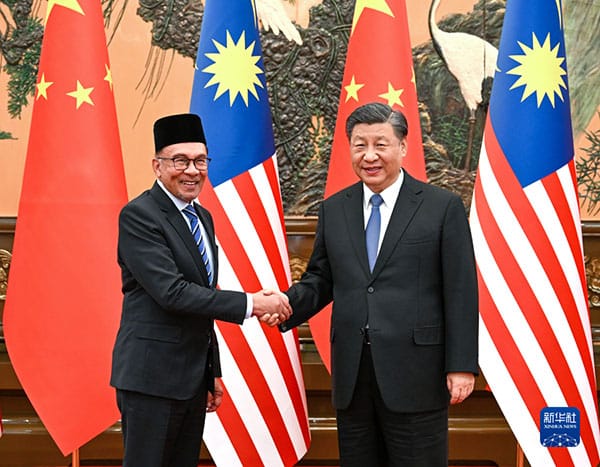Anwar Ibrahim A Beacon of Hope for Resolving the South China Sea Conflict?
Anwar can also utilize ASEAN's existing mechanisms, such as the East Asia Summit, to engage with China, USA and other stakeholders in the region.

The South China Sea, a vast and beautiful expanse of water, has been a source of tension and conflict among its neighbouring states for a long time. China's territorial claims, which include the controversial "nine-dash line," have strained relations with its neighbours, including Vietnam, the Philippines, Malaysia, Brunei, and Taiwan.
These overlapping claims have led to a series of confrontations, including fishing disputes, military incursions, and diplomatic standoffs, raising fears of a wider regional conflict. The South China Sea's strategic importance as a vital maritime thoroughfare and a potential source of energy resources has further complicated the issue.

Shipping Lanes
The region is home to critical shipping lanes, through which trillions of dollars worth of trade flows annually. The potential for oil and gas reserves in the seabed adds another layer of complexity to the already fraught situation, making it a highly contested area with significant geopolitical implications.
The South China Sea is not only a matter of concern for the countries in the region but also for the United States. The US has a significant interest in the area due to its strategic location and economic importance, including a significant portion of US trade. The US also has military bases and allies in the region, including the Philippines and Japan, which are crucial to its security interests in the Asia-Pacific region.
Additionally, the US has expressed concerns about China's growing military presence and territorial claims in the South China Sea, which it sees as a challenge to its regional influence and stability. As a result, the US has increased its military presence and conducted freedom of navigation operations in the area to assert its commitment to maintaining a rules-based international order and protecting its interests in the region.
Anwar's Role in Uniting ASEAN: A Diplomatic Balancing Act
Amidst this volatile situation, Anwar Ibrahim, the current Prime Minister of Malaysia, has emerged as a beacon of hope and a potential mediator. With his extensive experience in diplomacy and his unwavering commitment to ASEAN unity, Anwar offers a glimmer of hope for a peaceful resolution to the South China Sea dispute.
Anwar's ability to unite ASEAN will be crucial in addressing the South China Sea issue. ASEAN, with its ten member states plus one, represents a diverse group of nations with varying perspectives on the South China Sea dispute. Balancing these diverse interests will require Anwar's diplomatic skills and his commitment to consensus-building.
Anwar can leverage his strong personal relationships with ASEAN leaders to foster closer cooperation and trust within the bloc. He can also utilize ASEAN's existing mechanisms, such as the East Asia Summit, to engage with China, USA and other stakeholders in the region. By promoting ASEAN's unity and centrality in the South China Sea, Anwar can create a stronger foundation for negotiations and a peaceful resolution.
In addition to his regional efforts, Anwar has proactively reached out to China, seeking to understand their perspective and explore potential areas of cooperation. Anwar has called on China to respect the interests of its neighbours and work towards a mutually beneficial outcome that promotes stability and prosperity in the region.
The Road Ahead: Challenges and Opportunities
Despite some positive developments, the road to achieving a peaceful resolution in the South China Sea remains arduous. China's and the USA's unyielding stance on its territorial claims and the deep-rooted distrust among the coastal nations present significant challenges.
Anwar's vision for the future of the South China Sea prioritizes cooperation over confrontation. He advocates for a rules-based approach to the management of the region, which involves upholding international law and respecting the sovereignty of all littoral states. He firmly believes that ASEAN, as a regional bloc, can play a pivotal role in fostering dialogue, promoting shared interests, and de-escalating tensions. With his diplomatic skills and his unwavering commitment to peace, Anwar is a valuable asset to the region and a potential catalyst for positive change.
Nevertheless, Anwar's leadership and his unwavering commitment to ASEAN's unity offer a ray of hope. Anwar can play a pivotal role in steering the South China Sea towards a future of stability, harmony, and shared prosperity for all.

